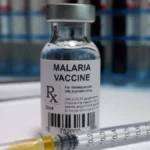
The strategy outlined four strategic areas of focus including developing norms and standards, introducing new tools and innovation, promoting strategic information for impact, and providing technical leadership of the global malaria response.
The new operational strategy includes ensuring evidence-based technical recommendations are a cornerstone of the fight against malaria, stimulating the development and timely introduction of new tools and innovation. While more progress can be achieved with currently available tools, new interventions are needed to accelerate the gains and counter emerging threats.
The new operational strategy is also guided by three equity-oriented principles of country ownership and leadership, with a whole-of-government and whole-of-society approach.
Director of the Global Malaria Programme, Dr Daniel Ngamije, said that in recent years, progress towards critical targets of the WHO Global Technical Strategy for malaria 2016-2030 has been stalled, particularly in countries that carry a high burden of the disease.
He observed that in 2022, there were an estimated 608,000 malaria-related deaths and 249 million new malaria cases globally, with young children in Africa bearing the brunt of the disease.
Ngamije stated that millions of people continue to miss out on the services they need to prevent, detect, and treat malaria adding that progress in global malaria control has been hampered by resource constraints, humanitarian crises, climate change and biological threats such as drug and insecticide resistance.
According to him, a shift in the global malaria response is urgently needed across the entire malaria ecosystem to prevent avoidable deaths and achieve the targets of the WHO global malaria strategy.
He said: “This shift should seek to address the root causes of the disease and be centred around accessibility, efficiency, sustainability, equity and integration.”
WHO Global Malaria Programme has an important role to play in leading the response to control and eliminate the disease worldwide. Through its direct actions and networks, including a presence in 150 countries, the programme is well placed to shape the malaria ecosystem and achieve impact at the country level.
According to the WHO, efforts to fight malaria must be fully owned and led by countries with adequate investment of domestic resources and a multisectoral response.
The UN body noted that a country-led response further promotes inclusive governance, accountability and specific interventions that are tailored to local contexts resilient health systems to enable the success of national malaria responses. Ensuring the provision of malaria services relies on a strong primary healthcare system that can respond to emerging needs and provide quality care for all people, including those infected with malaria.
WHO observed that all efforts to fight malaria should be rooted in the principles of equity, gender equity and human rights to ensure that the most vulnerable are protected and have access to quality health services, including malaria interventions and information.
Equity in access to malaria services is the focus of the year’s World Malaria Day under the theme: “Accelerating the fight against malaria for a more equitable world.” It is also a central tenet of the Yaoundé Declaration, signed in March 2024 by African Ministers of Health from some of the countries hardest hit by malaria,” Ngamije added.













